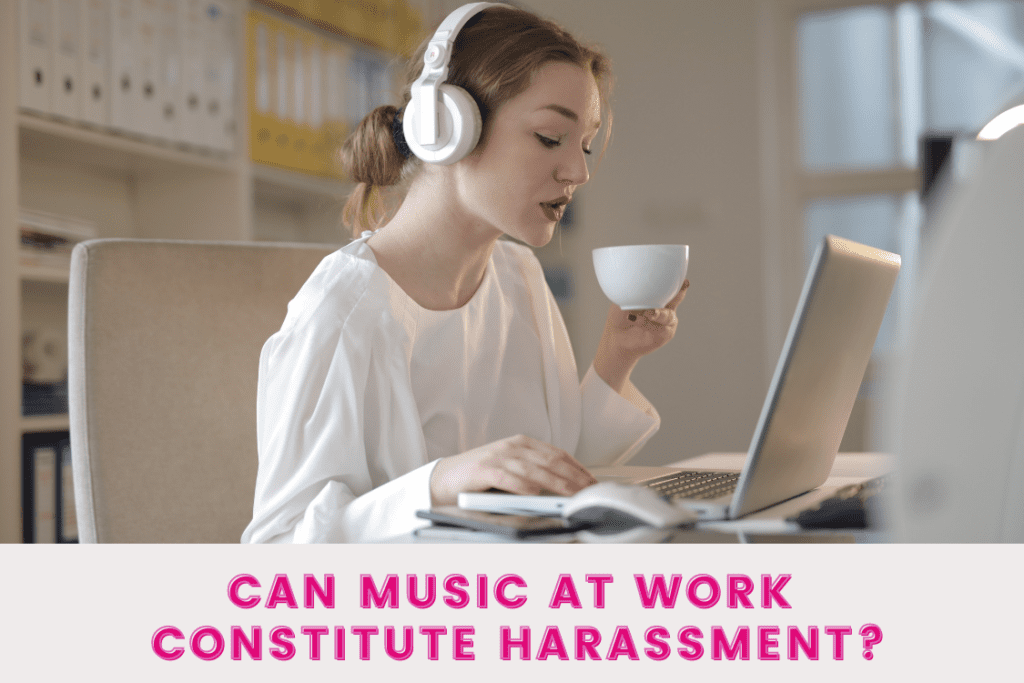After a recent webinar, a listener sent over this interesting article about a former Tesla employee who’s asking the US District Court of Nevada to agree with her claim that the “obscene and misogynistic rap music” played on site and the resulting actions of her co-workers are tantamount to sexual harassment.
When I read this my mind immediately went to an opposite story I’d heard from a white male friend (yes, that part is relevant) who works for a government contractor in a sea of cubicles.
A Black woman in a nearby cubicle often had headphones on while working. One morning she hadn’t plugged her earphones in all the way to their port, so he could hear what she was listening to. It was a speech about how the white population is holding down the Black population.
He tapped her on the shoulder and said, “Hey your ear plugs aren’t plugged in all the way.” She smiled, said thanks, and turned around to keep working.
Of course this story is different from music or speeches being blasted on company speakers; this was one person’s earphones and it was an accident that my friend overheard.
But I make a comparison anyway because of another important differentiator: Empathy. My friend was empathetic to his co-worker. It seems like the folks at Tesla were not.
With the holidays and the opportunity for the variety of religious music (and teachings) coming up, I thought I’d share four ways you and your organization can emulate empathy when it comes to music at work.
Create a holiday playlist by collecting music from your workforce
One way to create a positive and inclusive vibe is to send out a request for music from your workforce. Perhaps everyone can contribute to an intercultural holiday playlist, and team members can learn from each other as they discuss which songs they submitted and why.
If you need help getting started, here’s a holiday playlist we put out in 2019 – still one of our most visited website pages with all of its kindness, inclusivity, joy and togetherness.
Initiate discussions about appropriate versus inappropriate music at work
Activities like the previous one can’t happen in a vacuum, however, or they end up feeling like a check-the-box activity instead of a genuine effort to create a positive environment. Hopefully throughout the year you and all managers and leaders are engaged in conversation about inclusivity, positivity, company core values, and respect.
Perhaps your next conversation could include something about appropriate versus inappropriate music at work. You might ask for examples of how music can make people feel, why certain music may not fit within the company’s culture, and what they should do if they’re offended by someone else’s music.
Without getting too compliance-y, point out that your harassment prevention policy serves as a guide. As this article suggests, most policies prohibit racial and sexual slurs and epithets, so music with that type of language should be avoided at work.
Be an ally when it comes to music and harassment
I shared the story about my friend because it’s always stuck with me. While my team and I come across a whole lot of abuse and harassment in our work, we sometimes come across people who live as victims.
My friend could’ve been offended by what he heard, he might’ve even gone to HR to complain. He didn’t though, because he’s empathetic and understands from where he sits as a white male he has no business being annoyed.
He can look around at the tops of heads in his sea of cubicles and quickly understand that people just like her are underrepresented. And, she was listening on her earphones.
This is a much different scenario than gangsta rap and the resulting misogynistic comments and behavior that seemed to follow at Tesla. I don’t know if the Court will agree that Tesla’s environment was hostile, but I know that an ally would say that music about drugs, murder and b****** isn’t inclusive and probably shouldn’t be played at work.
Encourage the use of earpods for music at work
While this tip might sound counterintuitive to a welcoming work environment, as earpods might be considered the equivalent of a closed door, I personally would rather ask people to wear earpods than regulate music choices.
Your messaging around earpods should be very clear that earpods should only be worn when it’s safe to do so (e.g., not on a manufacturing line), and do not serve as a closed door. Rather pods are a way for people to get into whatever groove they need to be productive.
You and your team can also develop the rules of etiquette for earpods. One of my team members, for example, always announces that she’s going into earpod mode so that she can dig into something. Sometimes she tells us if we need to interrupt her we can, and other times she asks us not to interrupt.
This is a great example of metacommunication (communication about communication) at work.
If you’re looking for other resources related to building and maintaining a positive environment, check out one of our old blog posts about toxic environments for more tips. Also be sure to review this old blog on 6 warning signs you have a toxic culture. If you have one, you know where to find us.
Enjoy the holidays!
Catherine and the Civility Partners Team



